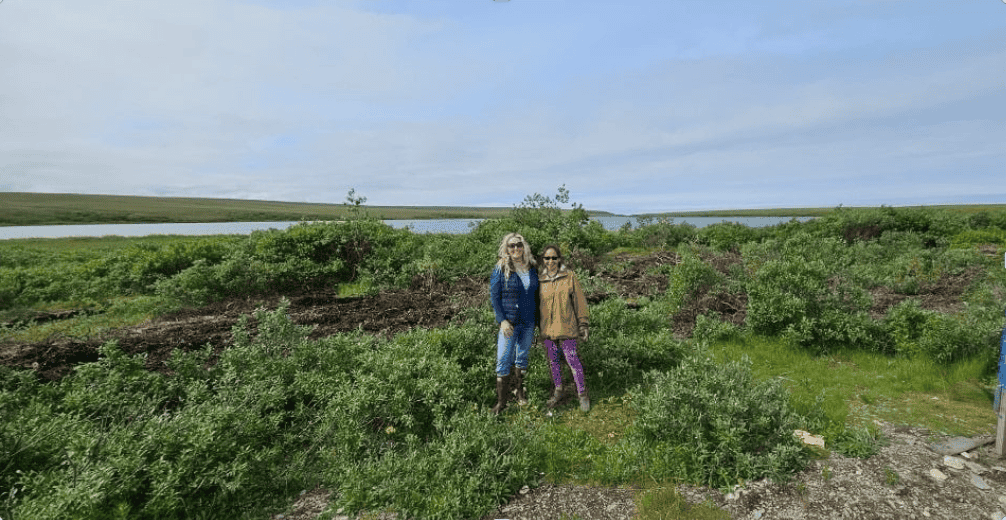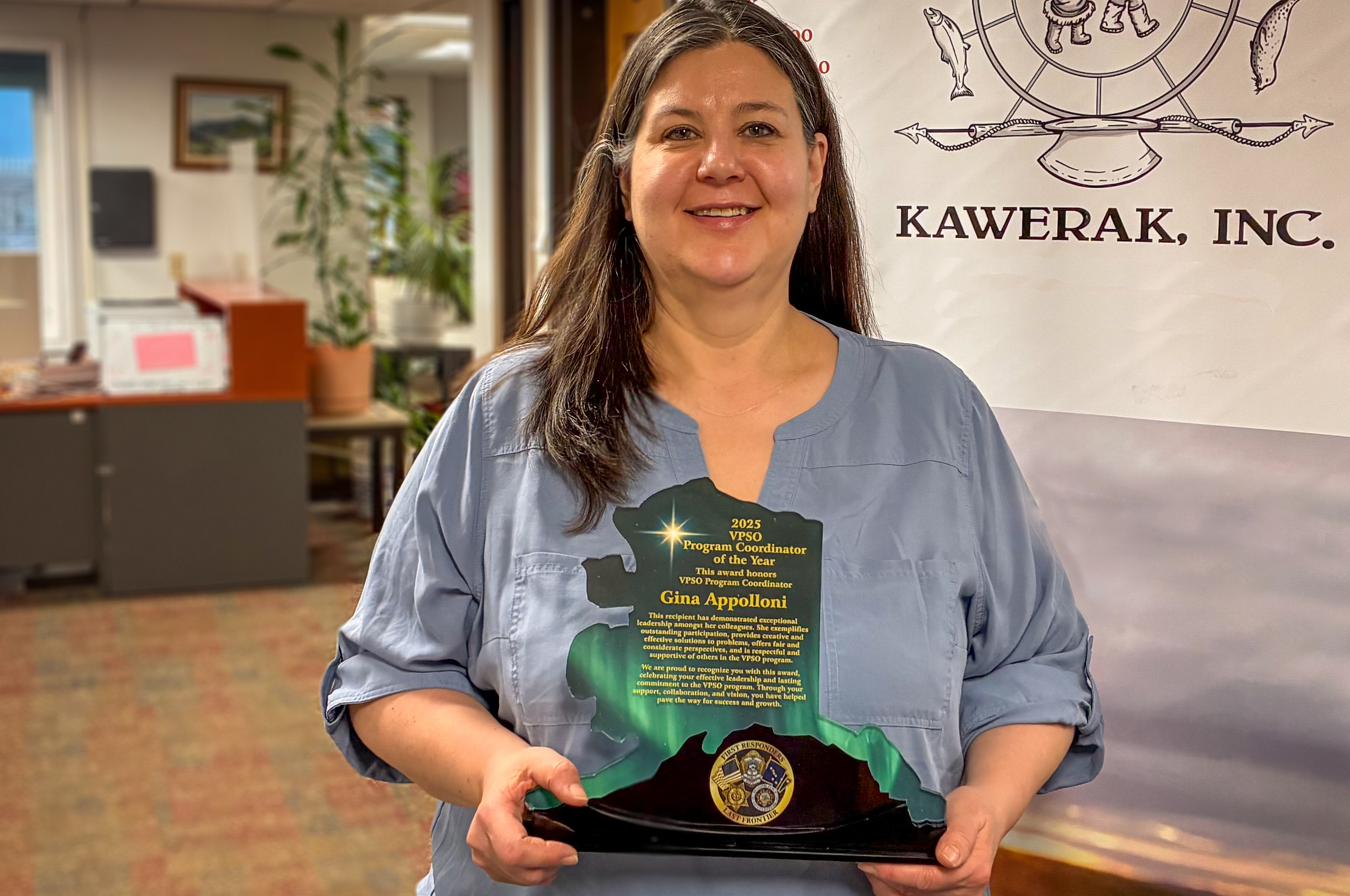“Kayutkulluta / Ilavut nakliiluit – We take care of each other.”
Kawerak Inc supports and stands by our communities and families impacted by the most devastating extreme weather event to hit our region and other areas of Western Alaska. We are grateful to our region’s Tribal leaders, mayors, unofficial community leaders, local volunteers, first responders, neighbors and family members who rose to the occasion, ensuring that no lives were lost. Our cultural values continue to sustain us in times of hardship and loss.
As we pick up the pieces and rebuild, know that Kawerak is actively engaged in assisting our communities. Some efforts to date include working with our village leaders to ensure their Small Community Emergency Response Plans are in place to prepare for disasters, and the opening our Head Start buildings where needed as an emergency shelter before, during and after the storm.
On Sunday morning, Kawerak President, Melanie Bahnke, reached out to the Governor’s Office, Senator Sullivan, Senator Murkowski, and Representative Peltola advocating for the State of Alaska to seek a major federal disaster declaration, which will open up federal aid to rebuild our infrastructure and provide individual and family assistance. We are told the Governor plans to issue the request today (Tuesday, 9/20/2022).
The Kawerak Tribal Affairs Program Director, Cheri McConnell stood up a regional teleconference Monday morning with our village mayors, Tribal leaders, and State and Federal Emergency Response entities to ensure open lines of communication and to begin the damage assessment process. Kawerak Tribal Coordinators are assisting our mayors and Tribal leaders with the paperwork to document damages for each of the communities. In addition nineteen (19) positions were opened for Alternate Tribal Coordinators to assist the Tribal Coordinators with paperwork that will ensure relief funds will be accessible.
The Kawerak Transportation Program, Sean McKnight traveled on Monday to Shaktoolik, Elim, and Golovin, Council, over the Solomon area, and down the coast back to Nome to assess the condition of the roads and while there, documented damages to State of Alaska Department of Transportation (ADOT) facilities to share with ADOT.
The Kawerak Emergency Preparedness Coordinator, Kevin Knowlton is actively engaging with the various emergency response efforts that involve multiple agencies. Today he and our Environmental Program Director, Anahma Shannon, obtained and delivered the State of Alaska oil spill materials and sent them to Golovin at the request of the State Dept. of Environmental Conservation to address the small oil spills occurring there. Mr. Knowlton is also coordinating a shipment of food and other essentials to Golovin, which was hardest hit in our region.
Several homes were lost or severely damaged in Golovin, and many subsistence cabins in outlying villages and around Nome were also wiped out or damaged. Kawerak will continue to advocate for aid for all impacted. We know that those who lost their homes must be given top priority, and once the immediate needs are met – we also need to ensure owners of subsistence use cabins are assisted as well. Our subsistence cabins span generations of use, provide food and cultural continuity, and as many were handed down from our ancestors, we want to ensure we are able to carry forward our subsistence way of life for our future generations.
Additionally, Kawerak is covering airfare for Kawerak employees with family members in Golovin who have homes that have been destroyed or damaged so they may assist with recovery and repairs and provide each other with emotional support. Kawerak also is providing paid time off for employees whose homes or subsistence cabins were destroyed / damaged.
Kawerak’s Welfare Assistance Department staff will also be traveling to severely affected communities like Golovin to provide in-person assistance to individuals who would like to apply for Kawerak’s Emergency Assistance Program.
Looking at the coming months ahead, Kawerak also intends to address food security issues throughout the region. Many communities suffered power outages resulting in the spoilage of the many subsistence food gathered over the spring and summer months. We plan to work with the aid agencies and also those entities that are raising funds for affected areas to help ensure that our people do not go hungry.
Once aid programs are announced, there the many applications and forms necessary may be overwhelming for some to complete. Our staff will work with entities like the American Red Cross and the Federal Emergency Management Agency to help our region’s residents and communities navigate the various channels of assistance. We are also grateful to other entities and their donors such as the Alaska Community Foundation, Alaska World Kitchen, the Alaska Native Heritage Center and the Red Cross for your help.
We know that we have communities in eminent danger, and the time to act is not just after a disaster, but before the next one happens. We will be calling on all our federal and state partners to ensure that climate change mitigation investments are strengthened, and that complicating factors to aid such as the 20% FEMA match when Tribes declare disasters – are eliminated. Additionally, Kawerak is working with the Alaska Federation of Natives to request a Congressional hearing on disaster preparedness, mitigation, and response.
For those of you who have been impacted by this typhoon, know that you are not alone and that Kawerak Board and Staff are working hard to not only rebuild after this disaster, but to proactively prepare for futures ones. May our ancestors continue to watch over us to ensure that our way of life carries on for our future generations.
“Nunaafut aflengakaqaghput / Nunakut munaqsriigikut – We take care of our land.”
Photo by Season Haugen, Kayaking to her father’s home in Golovin, AK





